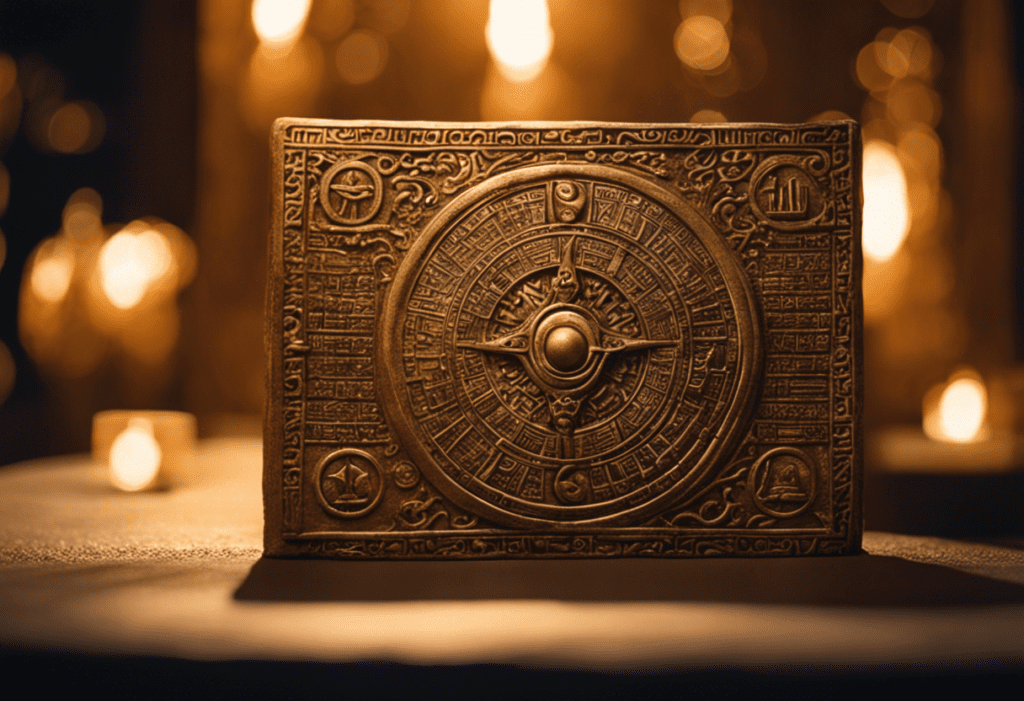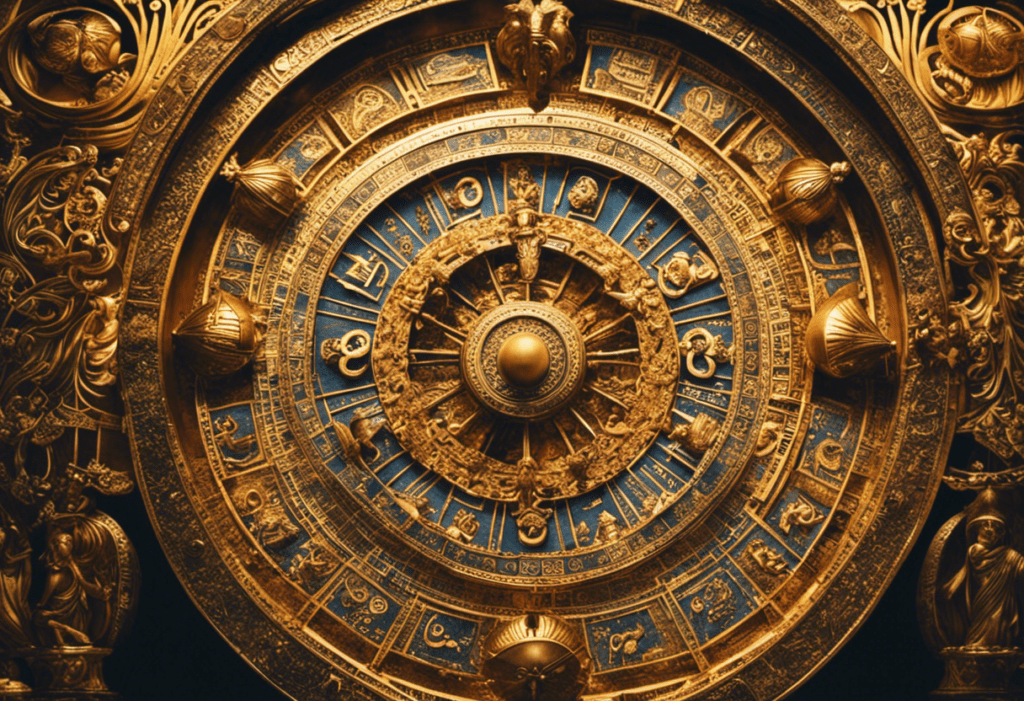In the mystical realm of Zoroastrianism, prophecy, divination, and the ancient Zoroastrian calendar intertwine like the celestial bodies in the night sky.
Through the lens of scholarly analysis and interpretation, this article delves into the origins of prophecy within this venerable faith.
It also explores the methods of divination employed by Zoroastrian practitioners and uncovers the role of astrology in prophetic practices.
Additionally, the article examines the power of interpreting sacred texts for divinatory purposes.
Join us on an enlightening journey into the depths of Zoroastrian prophecy and divination.
Key Takeaways
- Prophecy in Zoroastrianism is revealed through ancient texts and practices, such as prophetic visions and dreams mentioned in the Avesta.
- Sacred fire, celestial observations, and animal behavior are used as methods of divination, connecting the mortal realm with the divine.
- Astrology plays a significant role in Zoroastrian prophecy, with celestial events and the movement of stars providing insights into future events.
- The Zoroastrian calendar, closely tied to astrology, determines auspicious times for rituals and accurately predicts significant events and outcomes.
Origins of Prophecy in Zoroastrianism


The origins of prophecy in Zoroastrianism can be traced back to ancient texts and practices, providing valuable insights into the religious beliefs and principles of this ancient faith. In Zoroastrianism, prophecy is believed to be a means through which divine messages are revealed to individuals. The texts of the Avesta, the sacred scriptures of Zoroastrianism, contain references to prophetic visions and dreams, indicating the importance of prophecy in the faith.
Divination methods were also employed in Zoroastrianism, serving as a means to gain insight into the future and to interpret the will of the divine. One such method was the use of the sacred fire, which was believed to possess the power to reveal hidden truths and future events. The priests, known as magi, would carefully observe the flames and interpret their movements and patterns as signs from the divine.
Another method of divination in Zoroastrianism was the interpretation of celestial bodies, such as the stars and planets. The position and movement of these celestial bodies were believed to hold significant meaning and were often consulted to gain insight into future events and to make important decisions.
Overall, the origins of prophecy in Zoroastrianism can be traced back to ancient texts and practices, which highlight the importance of divination methods in gaining insight into the divine and interpreting the will of the gods.
Methods of Divination in Zoroastrian Culture
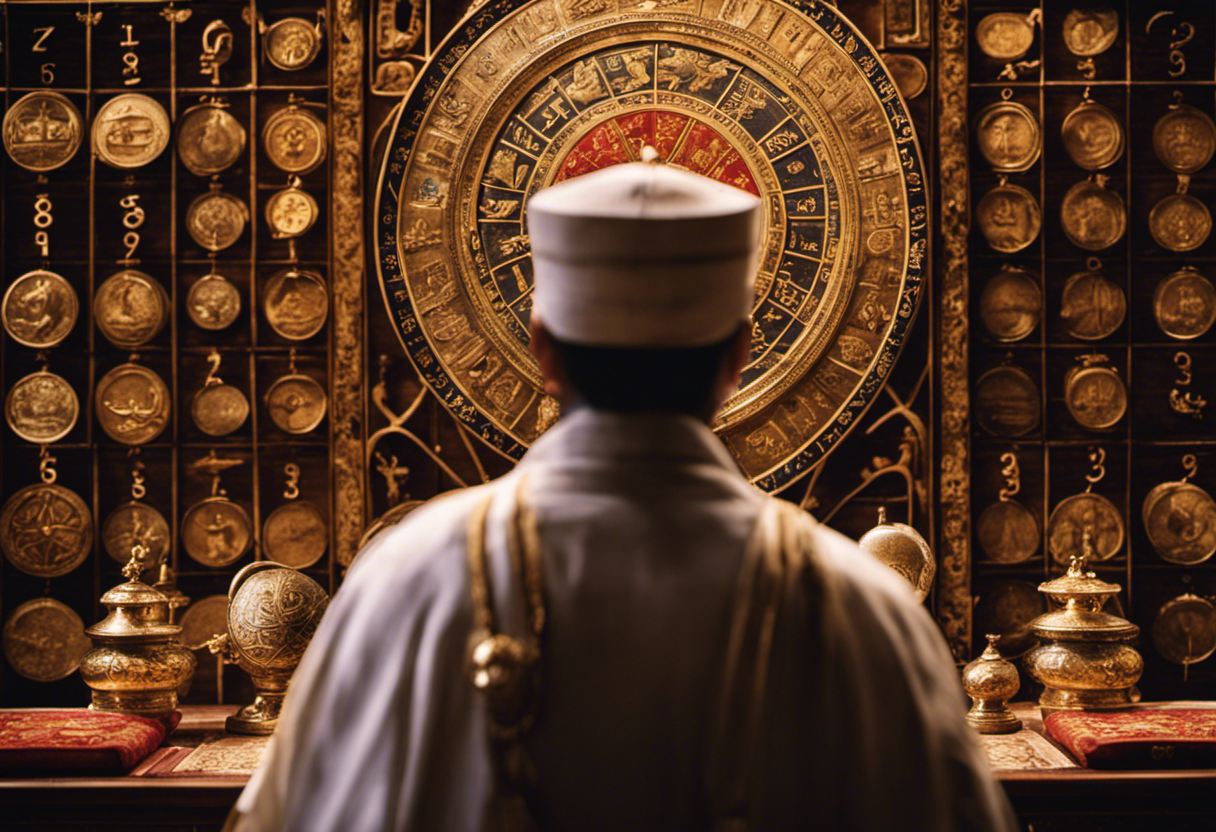

Divination methods such as the use of sacred fire and the interpretation of celestial bodies were integral to gaining insight into the future in Zoroastrian culture. These methods of divination were believed to connect the mortal realm with the divine, enabling individuals to understand the will of the gods and make informed decisions.
The Zoroastrians practiced various forms of divination, each with its own unique techniques and significance.
-
Sacred Fire: The Zoroastrians considered fire to be a sacred element and believed that it possessed the power to reveal hidden truths. By observing the flames and the way they danced and flickered, priests could interpret omens and foretell future events.
-
Celestial Bodies: The Zoroastrians were avid astronomers and believed that the positions and movements of celestial bodies held the secrets of the universe. They closely observed the stars, planets, and constellations to discern messages from the divine and predict the outcomes of important events.
-
Animal Behavior: In Zoroastrian culture, animals were believed to possess a deep connection with the spiritual world. Priests would carefully observe the behavior of animals, such as birds or domesticated animals, to interpret their actions as signs or omens for the future.
These methods of divination provided the Zoroastrians with a means to navigate the uncertainties of life and seek guidance from the divine. By understanding the future, they could make informed decisions and align their actions with the will of the gods.
The Role of Astrology in Zoroastrian Prophecy
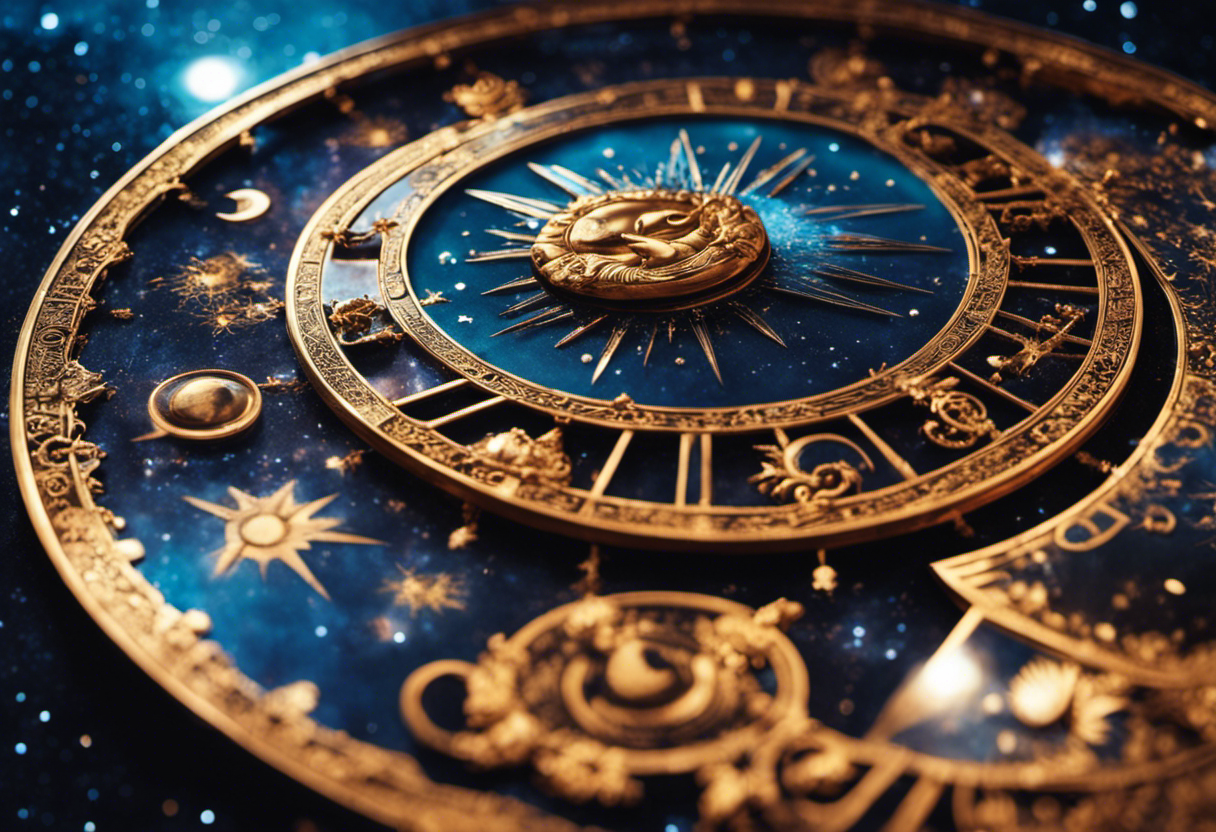

Astrology plays a significant role in Zoroastrian prophecy, as it is believed that celestial events and the movement of the stars can provide insights into future events.
The Zoroastrian calendar, which is closely tied to astrology, is used to determine auspicious times for important events and rituals.
Astrology and Future Events
Aligned with ancient beliefs, the intricate interplay of celestial bodies and their influence on forthcoming occurrences remains a focal point in discussions around the link between astrology and future events. Astrology, with its roots dating back to ancient civilizations, continues to hold a significant place in many cultures, shaping the way individuals perceive and interpret the world around them.
Despite its historical significance, the accuracy of astrology in predicting daily life events has been a subject of debate among scholars and skeptics. While some argue that astrology provides valuable insights into one’s personality and future, others question its scientific basis and dismiss it as mere superstition.
Nevertheless, astrology continues to captivate and intrigue individuals, offering a sense of comfort, guidance, and a means to understand the unknown.
- Astrology provides a sense of purpose and direction in life.
- Astrology offers a framework for self-reflection and personal growth.
- Astrology taps into the human desire to find meaning in the universe.
Zoroastrian Calendar and Astrology
The Zoroastrian calendar, with its intricate system of celestial observations and astrological calculations, plays a crucial role in the prediction of future events and prophecies within the Zoroastrian faith. Zoroastrian astrology, based on the alignment of celestial bodies and their influence on human affairs, is deeply intertwined with the calendar.
Scholars and practitioners of Zoroastrianism have long studied the movements of the sun, moon, stars, and planets to discern patterns and make predictions about the future. These predictions, derived from the Zoroastrian calendar, are not only used for personal guidance but also for understanding larger cosmic forces at play.
Interpreting Sacred Texts for Divinatory Purposes
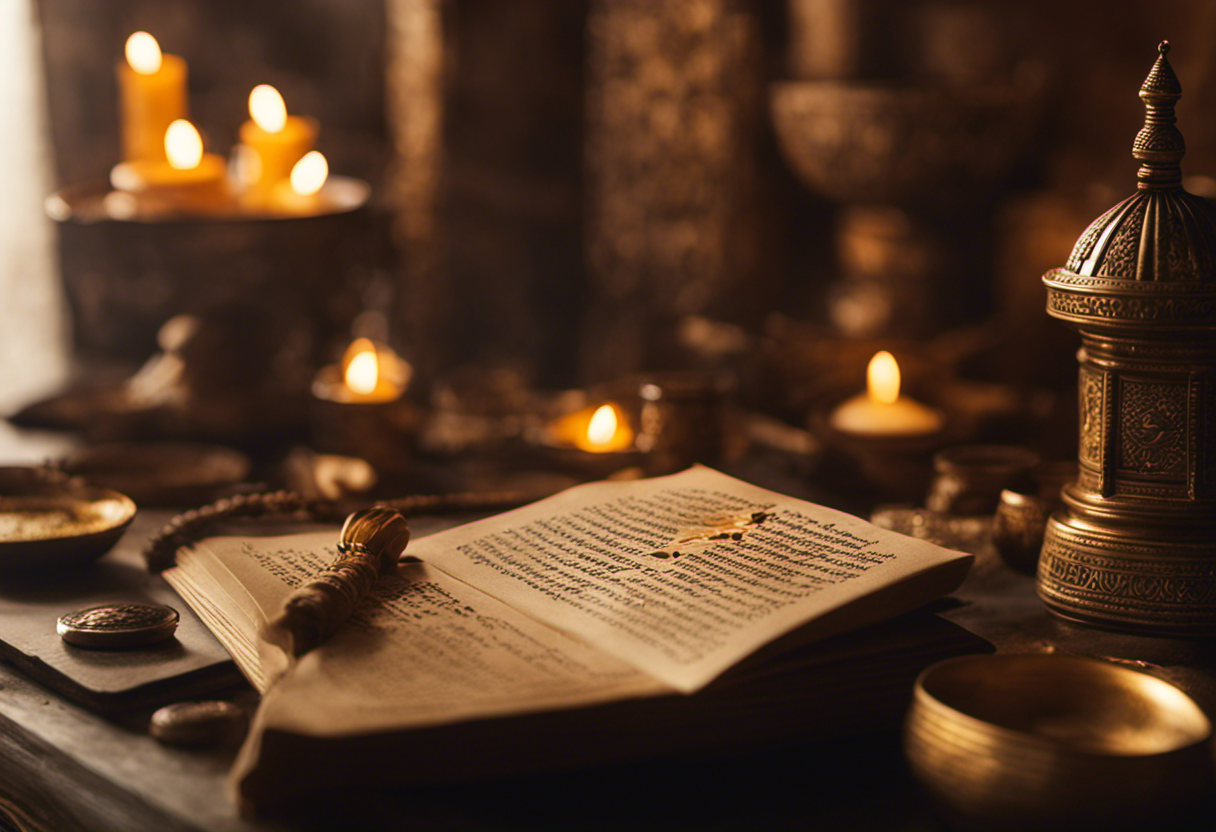

While scholars have long debated the authenticity and effectiveness of interpreting sacred texts for divinatory purposes, it remains a significant aspect of various religious traditions. The practice of interpreting texts to gain insights into the future or seek guidance from higher powers has been prevalent in cultures across the globe. Divinatory practices often involve the use of specific texts or scriptures that are believed to hold hidden meanings or prophetic messages. These interpretations are often carried out by individuals who possess specialized knowledge or are considered to have a connection with the divine.
Interpreting sacred texts for divinatory purposes can evoke a range of emotional responses in the audience:
- Intrigue: The idea of uncovering hidden meanings and gaining insight into the future can be captivating and pique curiosity.
- Comfort: Divinatory practices can provide individuals with a sense of comfort and reassurance, as they believe they are seeking guidance from a higher power.
- Skepticism: Some may view the interpretation of sacred texts for divinatory purposes as superstitious or irrational, leading to a sense of skepticism.
Overall, the interpretation of sacred texts for divinatory purposes continues to be a topic of interest and debate, with its significance extending beyond religious boundaries. Understanding the complexities and nuances of these practices can shed light on the diverse ways in which individuals seek meaning and guidance in their lives.
The Zoroastrian Calendar: A Guide to Future Predictions
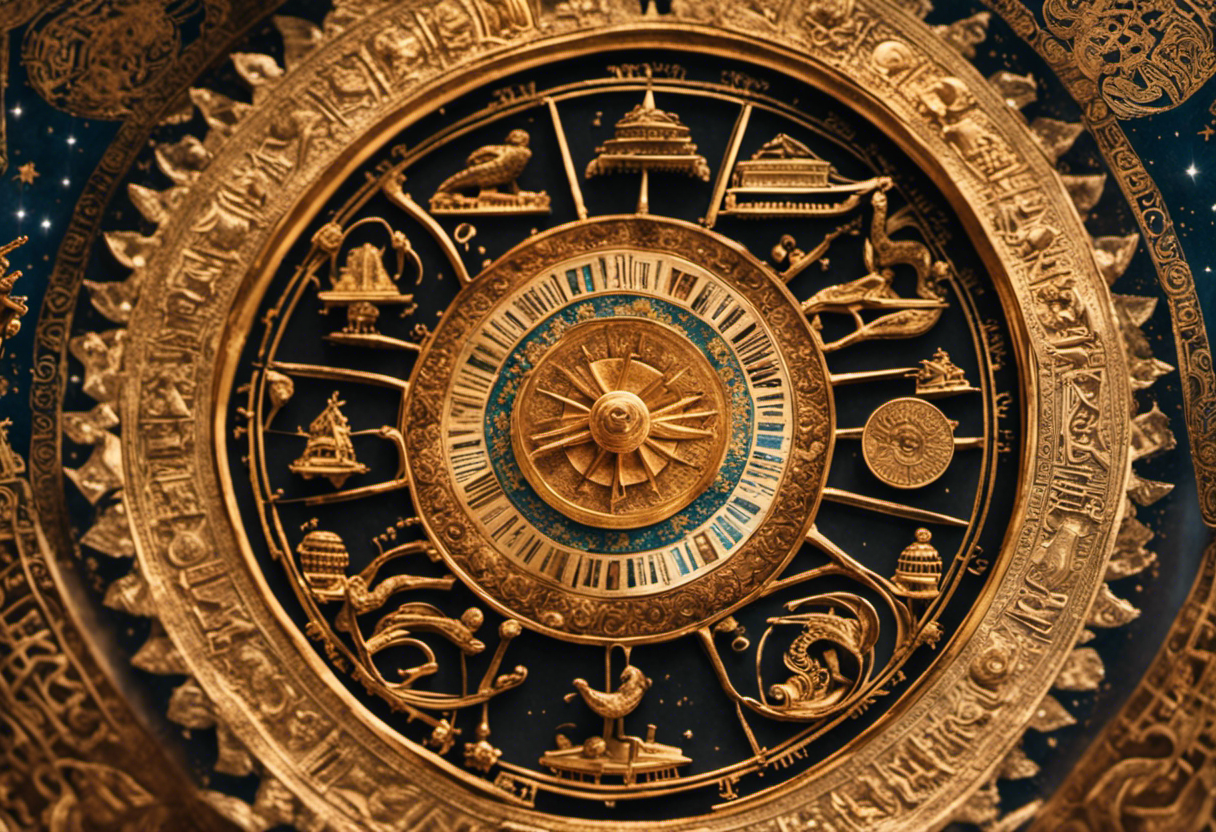

The Zoroastrian Calendar, rooted in the ancient Persian religion of Zoroastrianism, serves as a guide for predicting future events.
This calendar holds significant importance in divination practices, as it provides a framework for understanding the cosmic cycles and their impact on human lives.
Predicting Future With Zoroastrianism
Utilizing the principles of Zoroastrianism, practitioners can effectively forecast future events through divination practices and the interpretation of the Zoroastrian calendar. Zoroastrianism, an ancient Persian religion, holds strong beliefs regarding destiny and the ability to foretell future outcomes.
The concept of Asha, or cosmic order, suggests that the world is governed by a divine plan, making it possible to predict future events.
The Zoroastrian calendar, known as the Zoroastrian religious calendar, plays a key role in divination practices. It consists of twelve months, each associated with a specific deity and astrological sign, allowing practitioners to interpret celestial movements and make predictions.
Zoroastrians believe in the existence of supernatural beings such as angels and demons. These entities are thought to possess knowledge of the future, which can be accessed through divination rituals.
Significance of Calendar Predictions
Numerous significant events and outcomes have been accurately predicted through the use of the Zoroastrian calendar, highlighting the effectiveness and importance of calendar predictions in understanding future occurrences.
The Zoroastrian calendar, rooted in ancient Persia, played a pivotal role in the religious and cultural life of the Zoroastrian community. It not only acted as a means to measure time but also held deep symbolic significance. The calendar system, consisting of twelve months and various festivals, was intricately woven into the fabric of Zoroastrianism.
The role of symbolism in the calendar was paramount, as it provided a framework for understanding the cosmic order and the interplay between good and evil forces. Furthermore, the cultural impact of the calendar cannot be overstated, as it guided the Zoroastrians in their religious rituals, agricultural activities, and societal events.
Thus, the accurate predictions made by the Zoroastrian calendar demonstrate its importance in shaping the understanding of future events and its lasting influence on the Zoroastrian community.
Prophecy and Divination in Modern Zoroastrianism
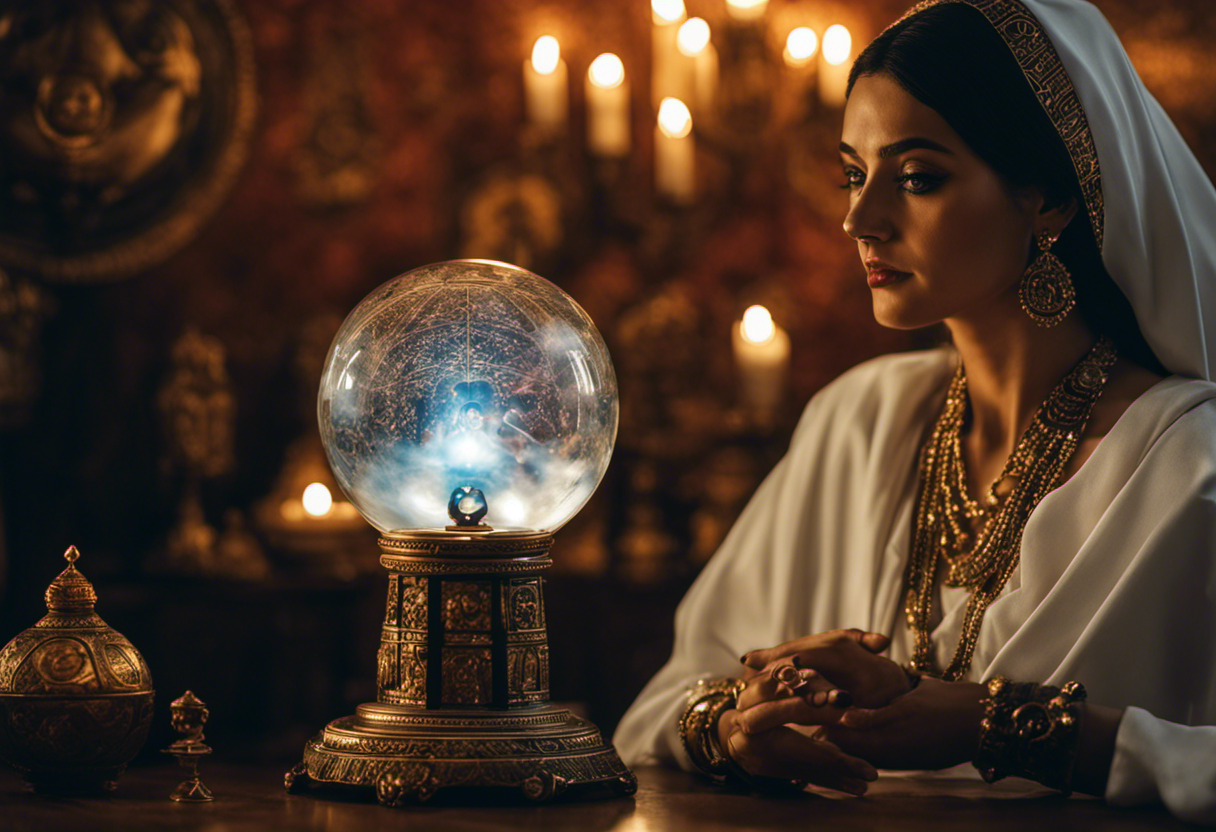

Several contemporary Zoroastrian scholars have explored the role of prophecy and divination in modern Zoroastrianism, shedding light on the ways in which these practices continue to shape religious beliefs and communal practices. In the context of modern interpretations and contemporary practices, it is evident that prophecy and divination hold a significant place in the lives of Zoroastrians.
-
Prophecy and divination provide a sense of guidance and direction in uncertain times, offering comfort and reassurance to individuals and communities.
-
These practices foster a deep connection with the divine, allowing individuals to seek answers to their questions and concerns through communication with higher powers.
-
Prophecy and divination also serve as a means of understanding the past, present, and future, providing insights into the events and challenges that lie ahead.
In modern Zoroastrianism, prophecy and divination are not seen as mere superstitions but as integral parts of religious practice. They offer a way to navigate the complexities of life, make decisions, and seek spiritual guidance. By studying and engaging with these practices, contemporary Zoroastrian scholars aim to preserve and deepen the rich traditions of their faith while adapting to the demands of the present age.
Conclusion
In conclusion, prophecy and divination have played significant roles in Zoroastrianism throughout history. From the origins of prophecy to the methods of divination and the use of astrology, these practices have served as tools for seeking guidance and understanding the future.
The interpretation of sacred texts and the use of the Zoroastrian calendar have further aided in predicting future events. Even in modern Zoroastrianism, these practices continue to hold importance, showcasing how ancient traditions still shape the beliefs and practices of the present.

